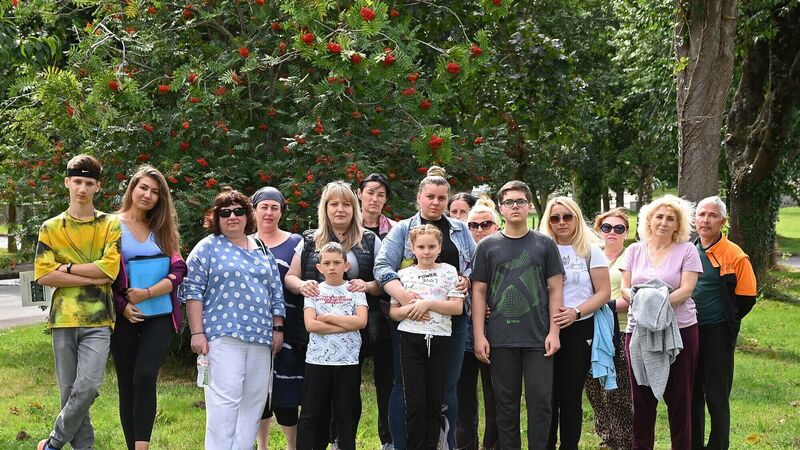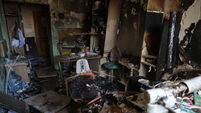Ireland has an obligation to all Ukrainians arriving here

A group of some of the people from Ukraine who have moved from Cork to Clonmel. Picture Denis Minihane.
Having opened its arms to Ukrainians fleeing the Russian invasion of their homeland, unsurprisingly, the Government now seems at a loss about where to send them.
Ireland has welcomed almost 50,000 people from Ukraine under a European Union Temporary Protection Directive, and is struggling to keep up with the numbers.
















